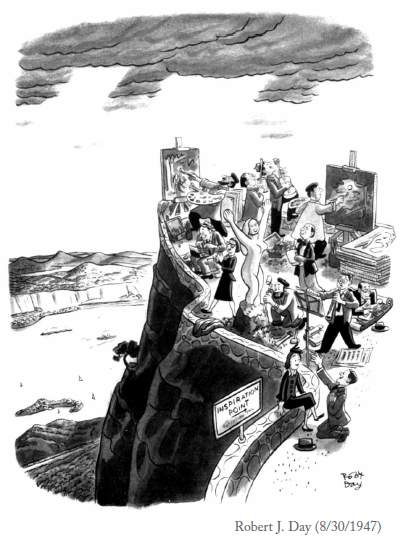Creativity
Happiness is not in the mere possession of money; it lies in the joy of achievement, in the thrill of creative effort.[57]
For me, the most satisfying and self confirming activity a person can engage in is creating something.
I gain a great deal of personal satisfaction from writing something, like this, designing and building something 'from scratch', like the staircases in two of my houses, writing computer software, creating a picture or planning and executing a project. Often the creative satisfaction comes from something as simple as doing some gardening or baking a cake.
I like to be applauded and acknowledged, by those whose opinion I respect when I do something well but often I create entirely for my own satisfaction. I have often noticed the same creative motivation in others. In particular, artists, poets and so on, will often persevere even if they have no admirers and derive no income from their art.
Possibly as a result of my own creative impulse, I am filled with admiration when I see something well executed or conceived like the Empire State Building, the beautiful Degas drawing: Après le Bain in the Art Gallery of NSW or Darwin's formulation of the theory of evolution.
As is evident from the quotations in this essay that the work of the author of Shakespeare (if not himself), of Byron, Einstein, Frank Lloyd Wright, TS Eliot and dozens of others is inspirational.

When I recruit members for my team I look for this motivation because I know that if their achievements are acknowledged and they are protected from unjust criticism or unrealistic demands, they will do their best no matter what else is happening around them. And I will admire their accomplishments and like them as individuals.
Yet I also know that not everyone is motivated by the stimulation and sense of personal satisfaction creativity brings. I worked too long with the 'one idea inventors', who have had a single flash of inventiveness and now expect it to make their fortune, to believe that all creativity is solipsistic or non-financially motivated. And my worldly experience has taught me that other motivations are much stronger in many people.
For example I have worked with and met just as many people who for reasons of politics, status or power, pleasure seeking, social approbation or simple jealousy, are more likely to destroy the creative efforts of others than to create something themselves.
Many people are motivated by competitiveness, recognition or other needs. These can be confused with the creative impulse. One might question which most motivated someone like Andy Warhol (a genuine pleasure in creation or competitiveness, notoriety, narcissism, or onanistic preoccupation) or what motivates Jeff Koons and other similar 'artists' today.
Although it would be easy to dismiss most sportspersons and compulsive gym goers as simple competitors and/or narcissists, it is obvious that many people engage in sport with no prospect of ever winning, gaining recognition or even of improving their appearance or health. So the motivation to build a muscle or to be anorexic may be closely related to creativity in our primitive brains.

